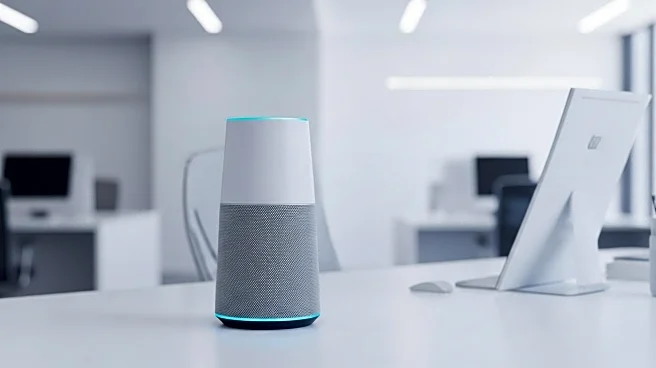What's Happening?
The self-checkout systems market is experiencing a significant rise in demand, with projections indicating substantial growth potential through 2031. This market trend is driven by advancements in technology and changing consumer preferences towards more efficient and contactless shopping experiences. Key players in the market include IBM, NCR Corporation, Diebold Nixdorf, and Fujitsu, among others. The market report provides a comprehensive analysis of the current state and future performance, highlighting trends, market size, and growth estimates. It also examines the market dynamics, including drivers, restraints, opportunities, and future trends, across major regions such as North America, Europe, APAC, MEA, and South and Central America.
Why It's Important?
The growing demand for self-checkout systems reflects a broader shift in retail and consumer behavior towards automation and efficiency. This trend is significant for the retail industry as it seeks to enhance customer experience and reduce operational costs. The adoption of self-checkout systems can lead to increased sales and customer satisfaction by minimizing wait times and improving service efficiency. Retailers investing in these technologies may gain a competitive edge, while consumers benefit from a more streamlined shopping process. The market's growth also suggests potential job shifts within the retail sector, as traditional cashier roles may evolve or decrease in demand.
What's Next?
As the self-checkout systems market continues to expand, retailers are likely to increase their investment in these technologies to stay competitive. This could lead to further innovations in self-service technology, enhancing functionality and user experience. Additionally, regulatory considerations regarding data privacy and security may become more prominent as these systems collect and process consumer information. Stakeholders, including technology providers and retailers, will need to address these challenges to ensure compliance and maintain consumer trust.
Beyond the Headlines
The rise of self-checkout systems may have broader implications for labor markets and consumer privacy. As automation becomes more prevalent, there could be a shift in employment patterns within the retail sector, potentially impacting low-skilled jobs. Moreover, the increased use of technology in retail raises questions about data security and consumer privacy, necessitating robust measures to protect sensitive information. These developments could influence public policy and regulatory frameworks, as governments and industry leaders work to balance innovation with ethical considerations.











